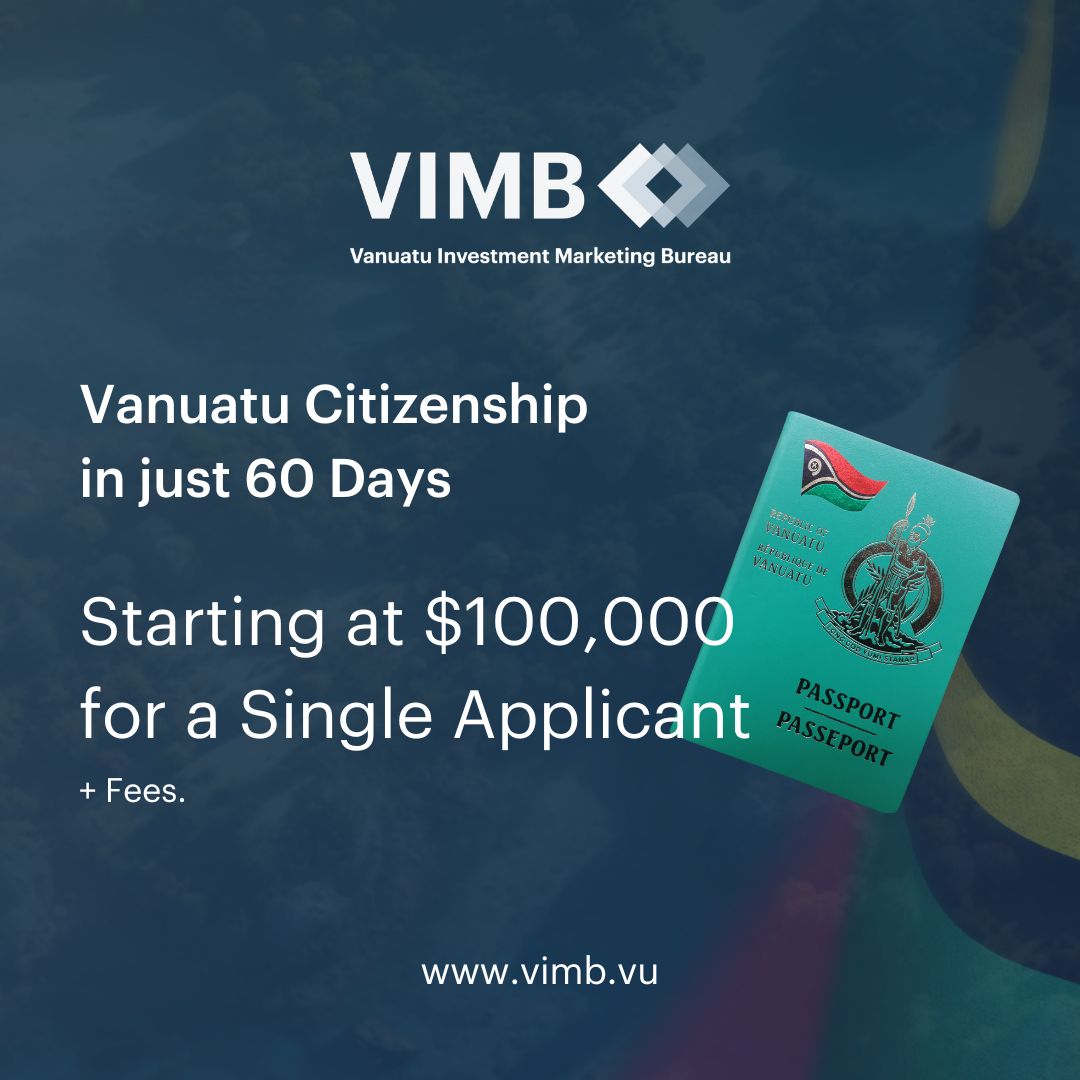Vanuatu Introducing State-of-the-Art Electronic Passports with an eye to Schengen Europe visa-free travel
Vanuatu, a picturesque island nation in the Pacific, has embarked on a significant modernization of its travel documents by transitioning to electronic passports equipped with advanced security features. This initiative represents a vital step in the nation’s efforts to bolster national security, streamline travel processes, and conform to global standards.
In pursuing this passport upgrade, Vanuatu hopes to regain its Schengen Europe visa-free privilege, suspended by the EU in 2022 whilst enhancements to Vanuatu’s successful citizenship by investment program (including the introduction of a fully biometric passport) have been undertaken.
The Need for Electronic Passports
The conventional paper-based passport system is fraught with limitations, including susceptibility to forgery, tampering, and loss. Electronic passports, by contrast, offer a more secure and efficient method for verifying traveler identities. The International Civil Aviation Organization (ICAO) advocates for the global adoption of electronic passports, and Vanuatu’s alignment with this trend underscores its commitment to enhancing travel security and efficiency.
Enhanced Security Features
Vanuatu’s new electronic passports boast several cutting-edge security features:
- Biometric Data: These passports incorporate biometric identifiers such as fingerprints, facial recognition, and iris scans, significantly reducing the risk of unauthorized use of stolen or forged passports.
- Radio Frequency Identification (RFID) Chip: Embedded with the traveler’s personal and biometric data, the RFID chip facilitates quick and secure identity verification at border controls.
- Digital Signature: A digital signature is integrated into the passport to detect any unauthorized alterations or tampering promptly.
Benefits of Electronic Passports
The shift to electronic passports is poised to deliver numerous advantages for Vanuatu, including:
- Improved National Security: Advanced security measures diminish the threats of identity theft, forgery, and other security violations.
- Enhanced Travel Experience: These passports enable swifter and more efficient processing at border checkpoints, reducing waiting times for travelers.
- Alignment with International Standards: By adopting electronic passports, Vanuatu aligns itself with international norms, facilitating smoother and more secure international travel for its citizens.
Insights and Data
- Global Adoption: Currently, over 120 countries have implemented electronic passports, with several others planning transitions in the near future.
- Security Risks: Traditional paper-based passports are prone to various security risks including forgery, tampering, and loss.
- Biometric Technology: The integration of biometric data in electronic passports has proven to significantly mitigate risks associated with identity theft and fraud.
- International Cooperation: The transition to electronic passports is a crucial element of global efforts to combat identity theft and terrorism.
Relevant URLs
- Daily Post News on Vanuatu’s Electronic Passports
- ICAO Information on Biometric Passports
- Interpol on Biometrics
- UNODC on Identity-Related Crime
In conclusion, Vanuatu’s initiative to upgrade to electronic passports with advanced security features marks a significant progression in modernizing its travel documentation system and aligning with international standards and to better align with EU and UK security requirements. The inclusion of sophisticated security features and biometric data not only enhances national security but also improves the travel experience, ensuring safer and more efficient international mobility for its citizens.











